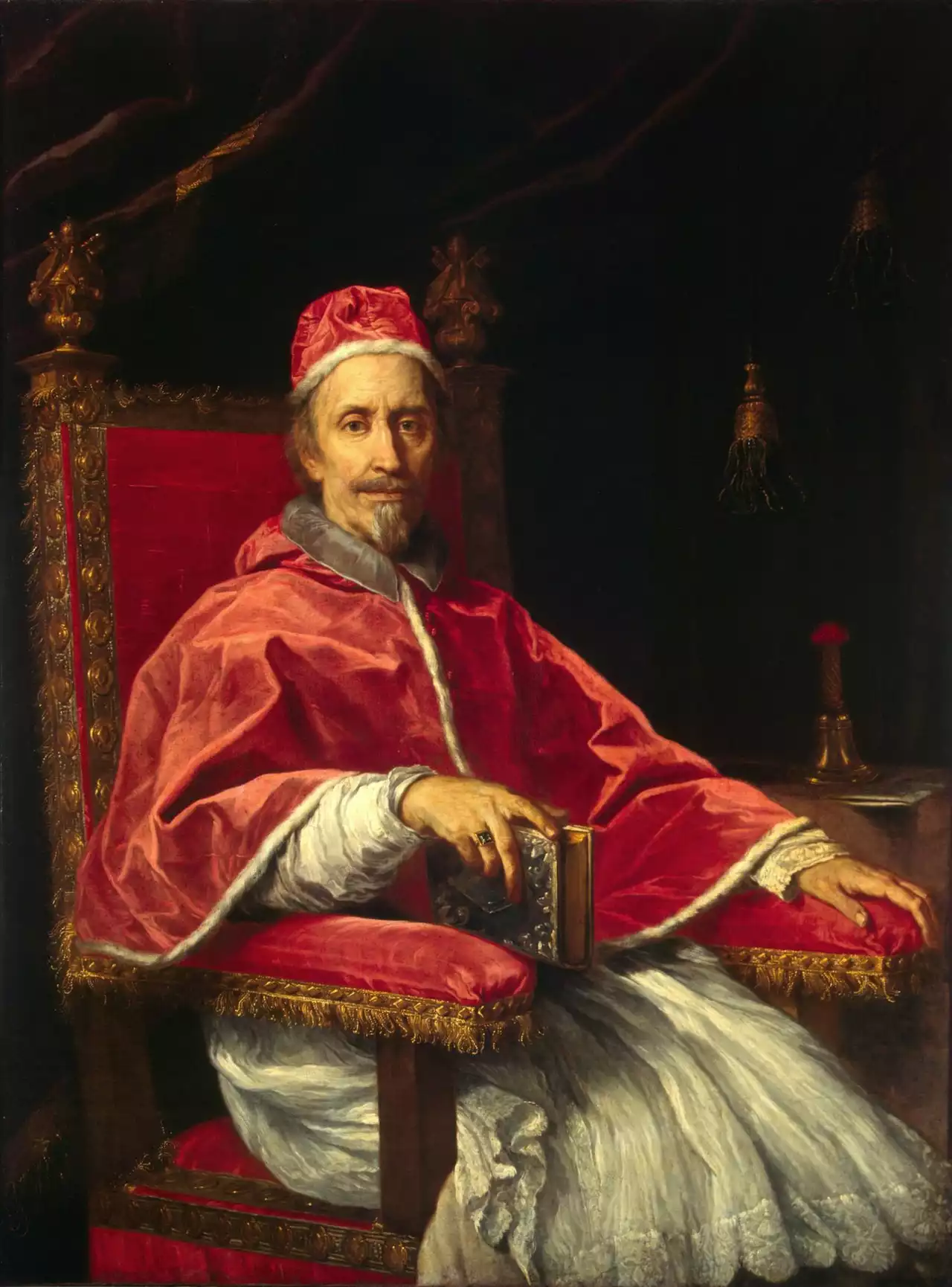
Giulio Rospigliosi was born on January 28, 1600 in Pistoia, Tuscany. He became Pope Clement IX, leading the Catholic Church from 1667 until his death in 1669. As pope, Clement IX worked to maintain peace during a period of European conflicts. However, he faced challenges within the church, including nepotism and the need for church reforms.
Early Life and Career as a Cleric
Rospigliosi was born into a noble family in Pistoia. He studied philosophy and law before entering the service of the Church. Rospigliosi rose steadily through the church hierarchy, eventually becoming a cardinal in 1657 under Pope Alexander VII. He developed a reputation as an effective administrator and diplomat. These skills would later serve him well during his own papacy.
Despite his noble birth, Rospigliosi was noted for his humility and simple lifestyle. He avoided the trappings of luxury and privilege that many other cardinals indulged in at the time. This helped make him an attractive candidate for pope after Alexander VII’s death in 1667. The cardinals saw Rospigliosi as someone who could reform corruption and nepotism within the church. After long deliberations, the cardinals selected him as a compromise candidate for pope.
Papacy and Diplomacy
As pope, Clement IX focused on maintaining peace and stability across Europe. He sought to mediate conflicts between France, Spain, Portugal and the Holy Roman Empire. The pope also aimed to centralize papal control over the church and reform corruption.
However, Clement IX faced challenges in fully achieving his goals. Nepotism remained an issue, as the pope gave privileges and benefits to some relatives. There was also resistance to some of his reform efforts from factions within the church hierarchy.
On the diplomatic front, Clement IX played an important role in negotiating peace to end the War of Devolution between France and Spain in 1668. However, bringing an end to all conflicts proved difficult. Clement did not live to see a final comprehensive peace settlement take shape across Europe.
Despite these challenges, Clement IX is remembered for his efforts to reduce tensions and instability during his papacy. He took small but meaningful steps to curb nepotism and institute reforms. The pope also prioritized diplomacy and compromise over conflict. This reflected his essentially peaceful nature and alignment with humanist values.
In his brief two-year papacy, Clement IX worked to promote stability and reform within the Catholic Church. He could not fully overcome all the challenges he faced, from nepotism to resistance to change. However, the pope’s diplomatic efforts helped secure an important peace treaty between major European powers. Clement IX laid the foundation for future reform efforts and a more centralized, well-managed papacy. His essentially peaceful nature and preference for compromise over conflict reflected the humanist spirit of the age.
References
Coppa, F.J. (1998). The Papacy in the Modern World. Catholic University of America Press.
Kelly, J.N.D. (1986). The Oxford Dictionary of Popes. Oxford University Press.
Maxwell-Stuart, P.G. (1997). Chronicle of the Popes. Thames & Hudson.
Schmidt, H.J. (1997). Geschichte des Päpstlichen Nuntius in Wien. Böhlau Verlag.
